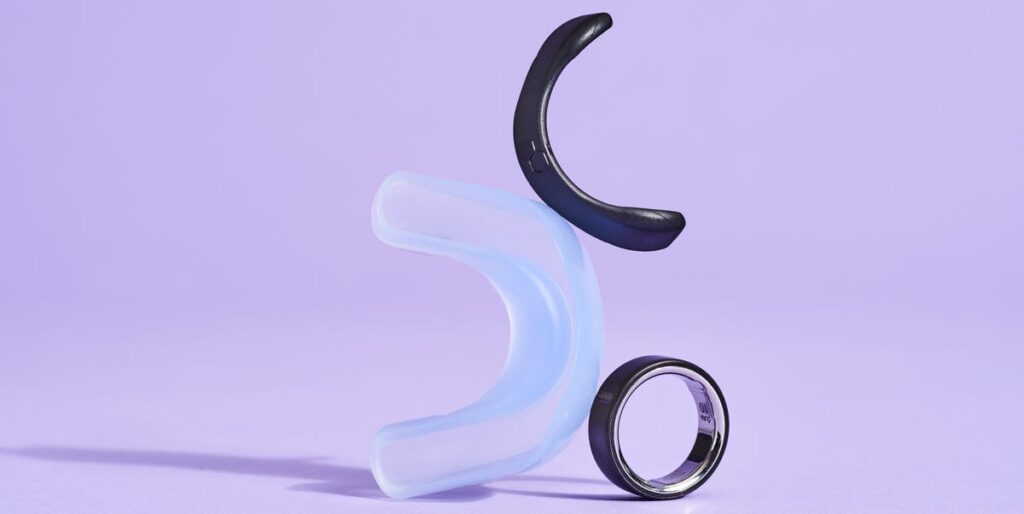While the Oura Ring won’t stop snoring on its own, it can help you track your efforts and show how well you are sleeping. It’s a good starting point to use in conjunction with others in this guide to see if the devices are effective for you.
The Ring 4 revamps its slightly bulkier third generation for a slimmer, more comfortable update. It also stepped up its game in terms of utilizing new sensors and algorithmic improvements to an already powerful health-tracking device.
“I personally love the sleep tracking feature on my own Oura Ring,” noted our tester. “It’s definitely my most-utilized metric—it’s the first thing I check every morning when I wake up. And I have to say, it’s highly accurate. I wake up at least once a night, and I’ll typically look at the clock when I do. When I check my Oura sleep metrics in the morning, it shows my midnight wake-up time almost exactly every time.”
This ring tracks it all: sleep analysis, heart rate variability (HRV), resting heart rate, activity tracking, blood oxygen monitoring, temperature variation, daytime stress detection, and more. For deeper sleep analytics, it automatically records how well and how long you slept, as well as the duration of your deep, REM, and light sleep cycles, providing a readiness score to help you start each day.
Understanding your sleep habits with the Oura Ring’s sleep tracking can help you improve your overall wellness. Add it to your arsenal so you can track if your sleep is improving during your anti-snoring device testing (you can’t measure what you can’t track, after all).
Read More: Best Smart Rings
Read the full article here


